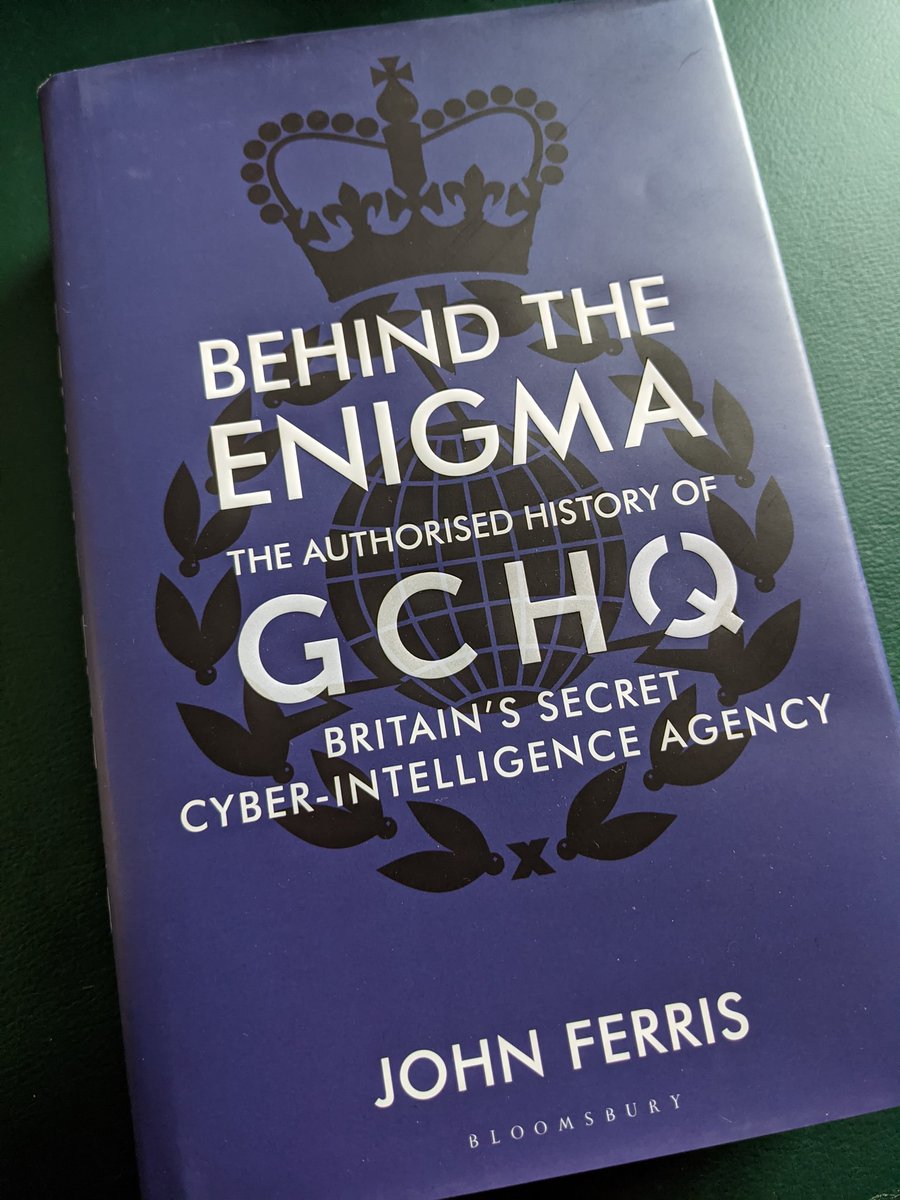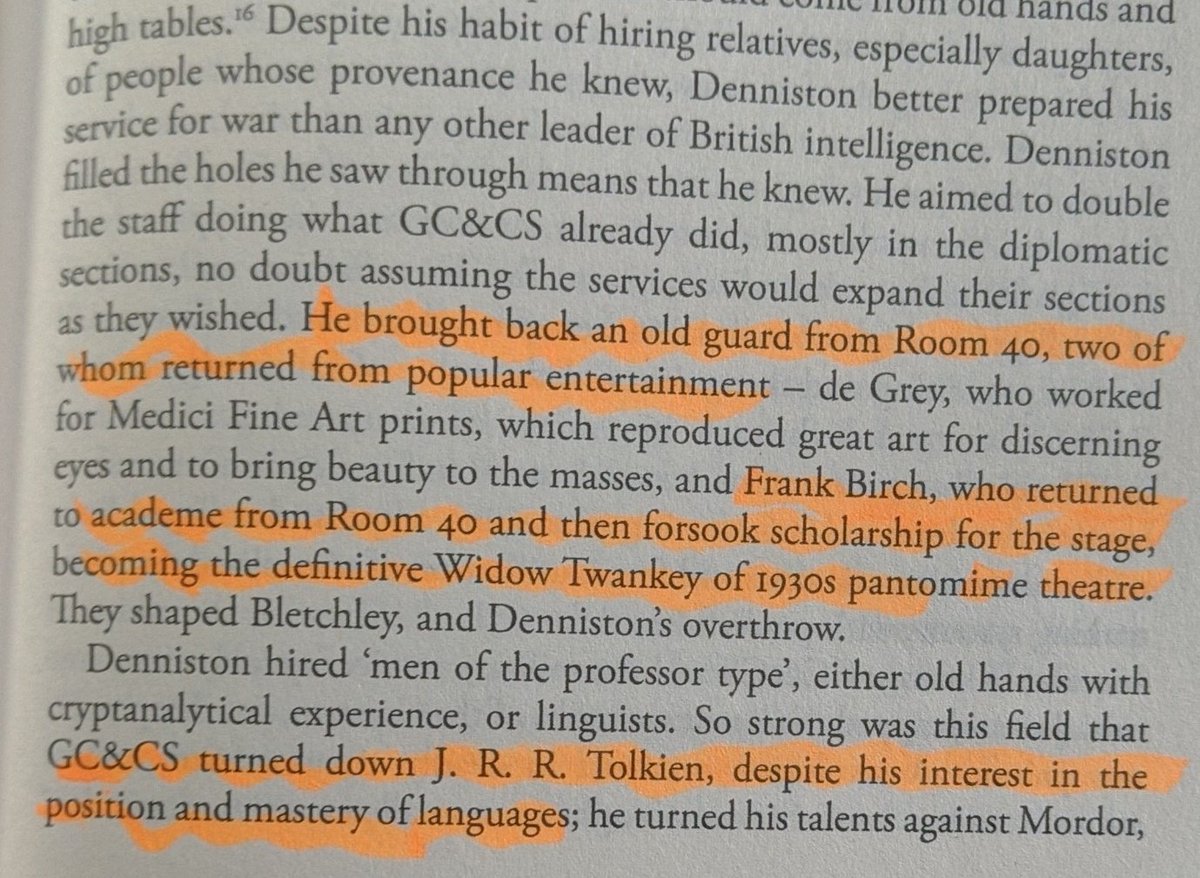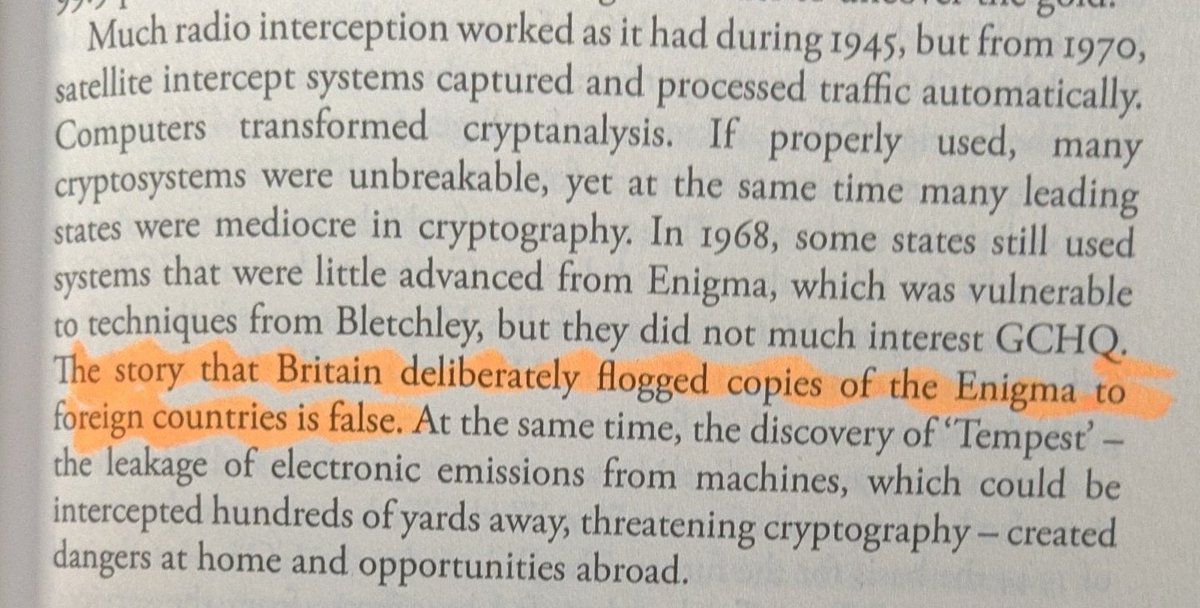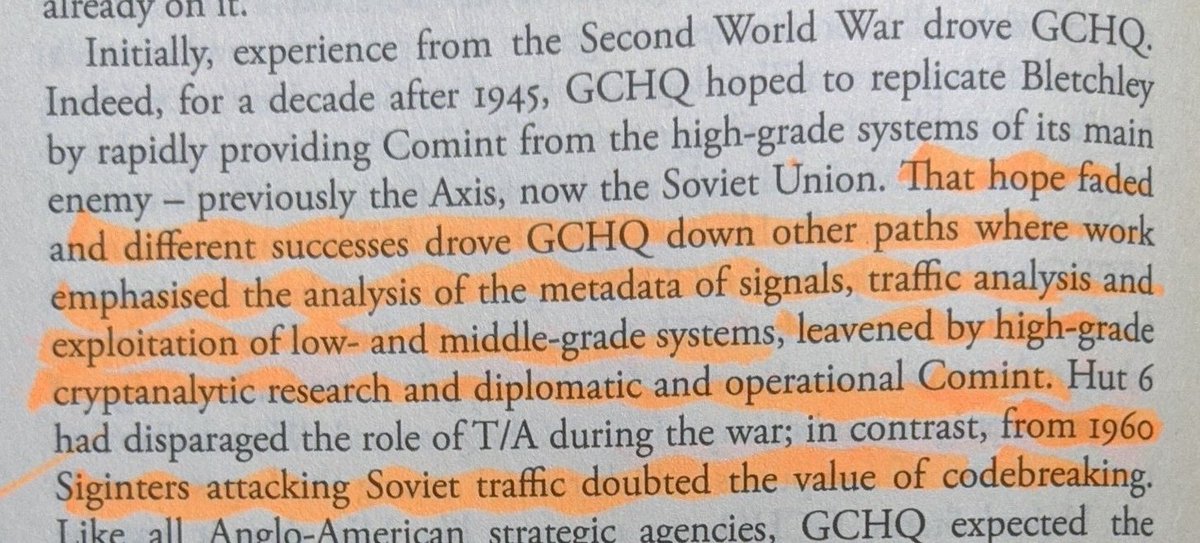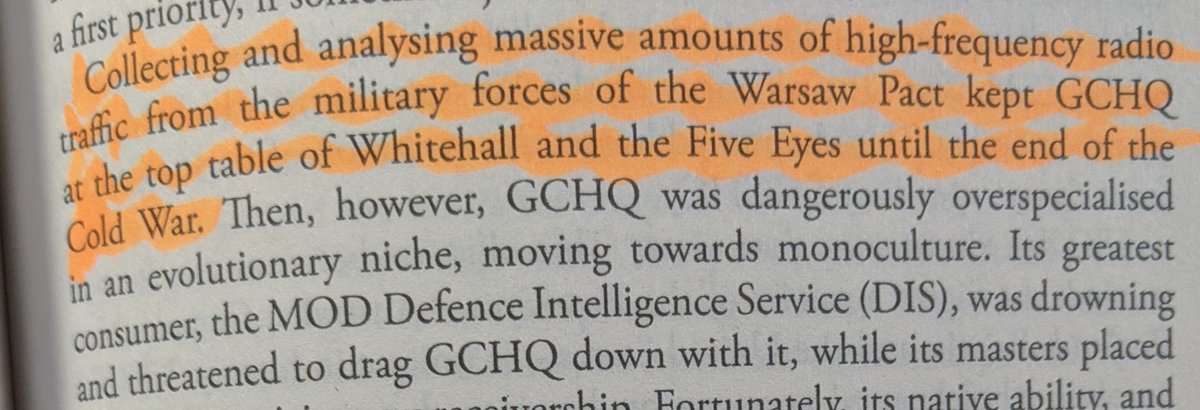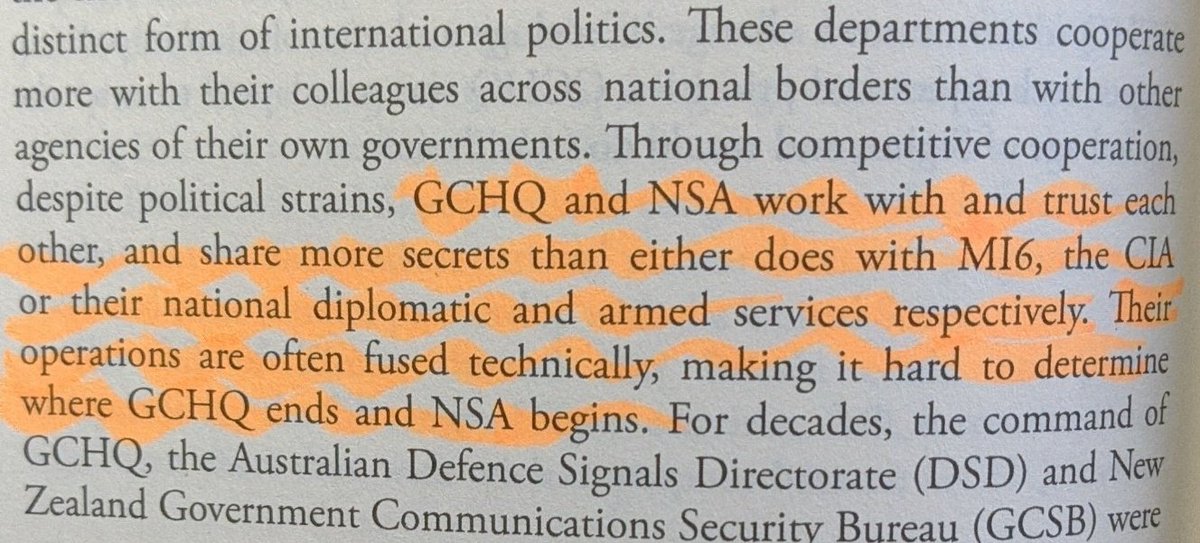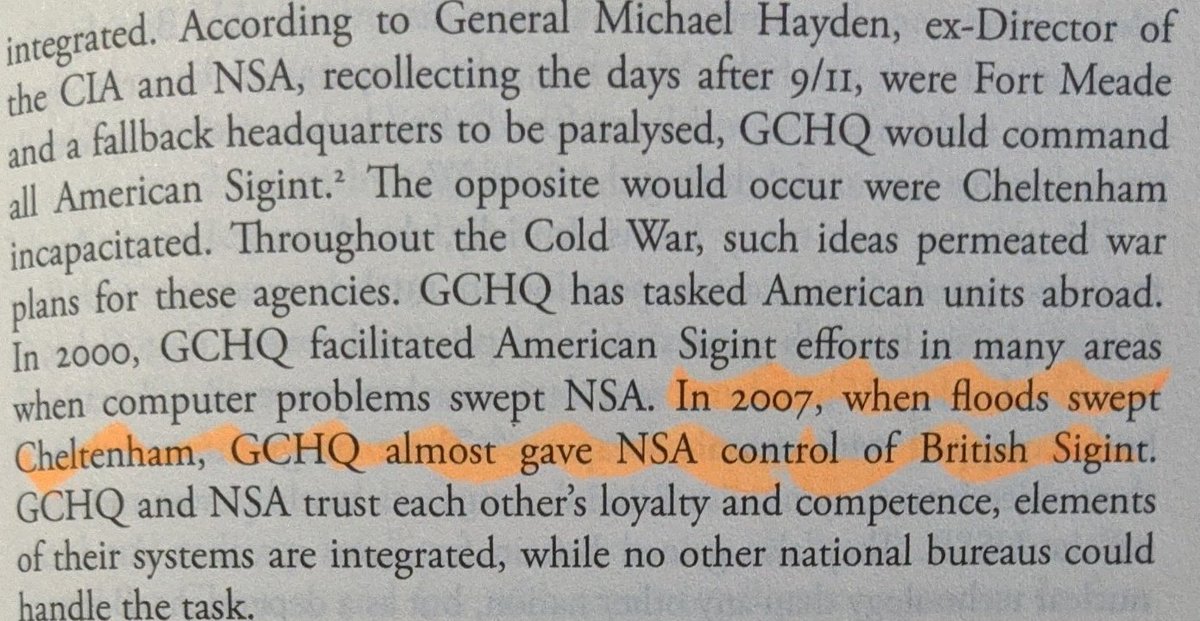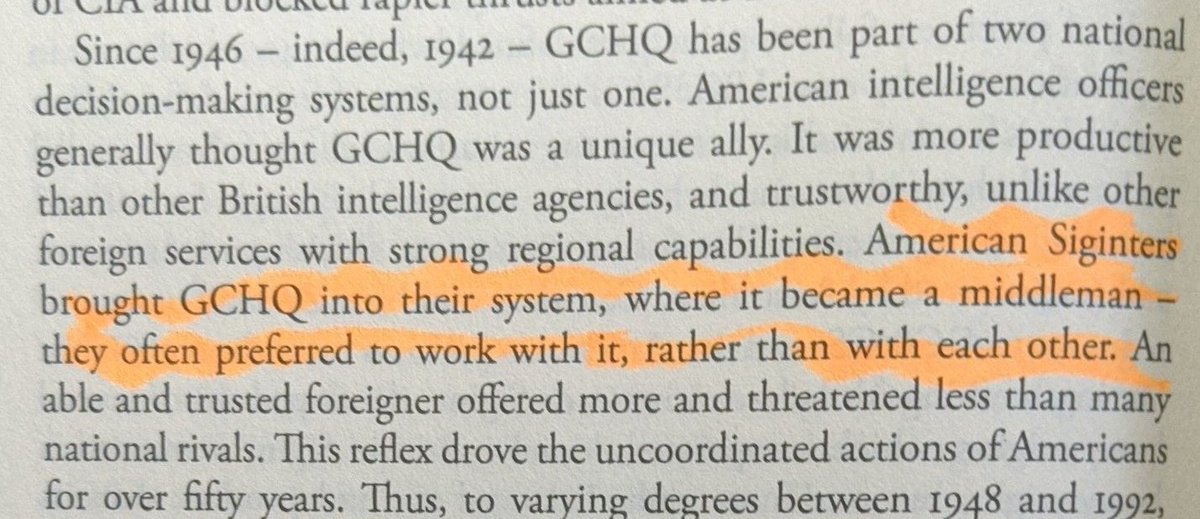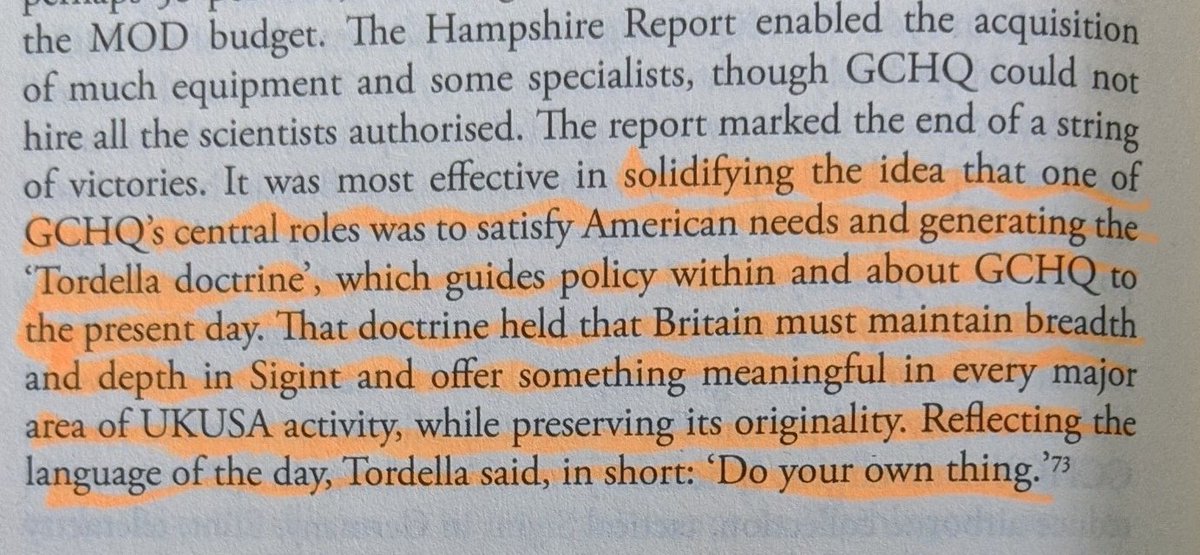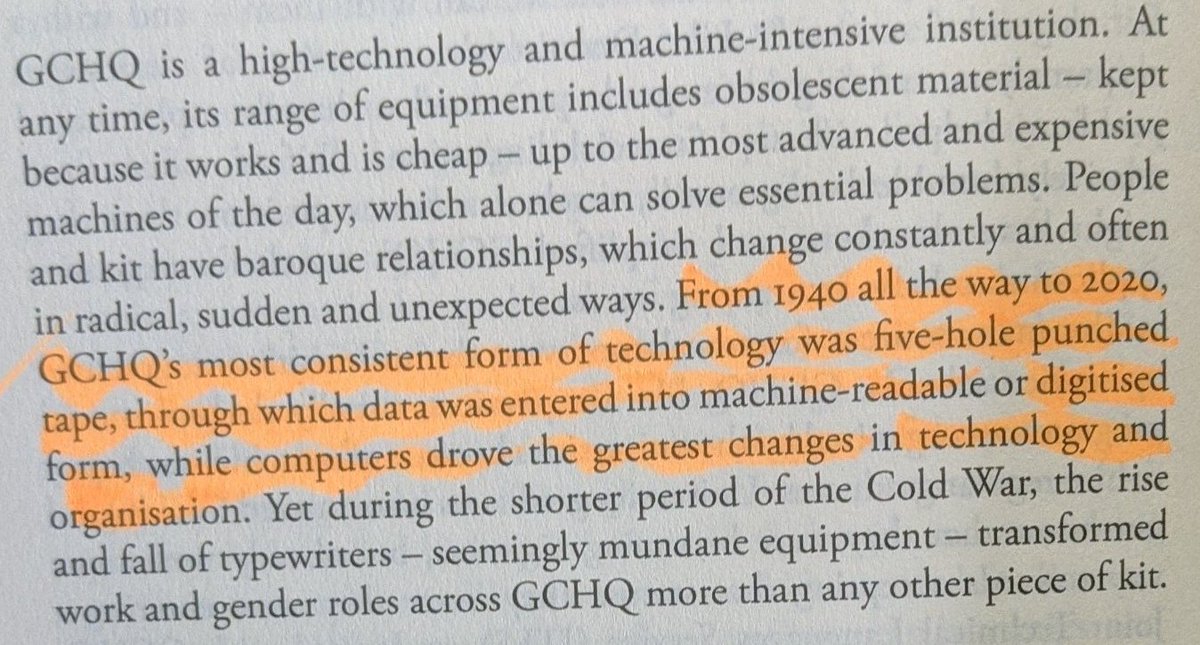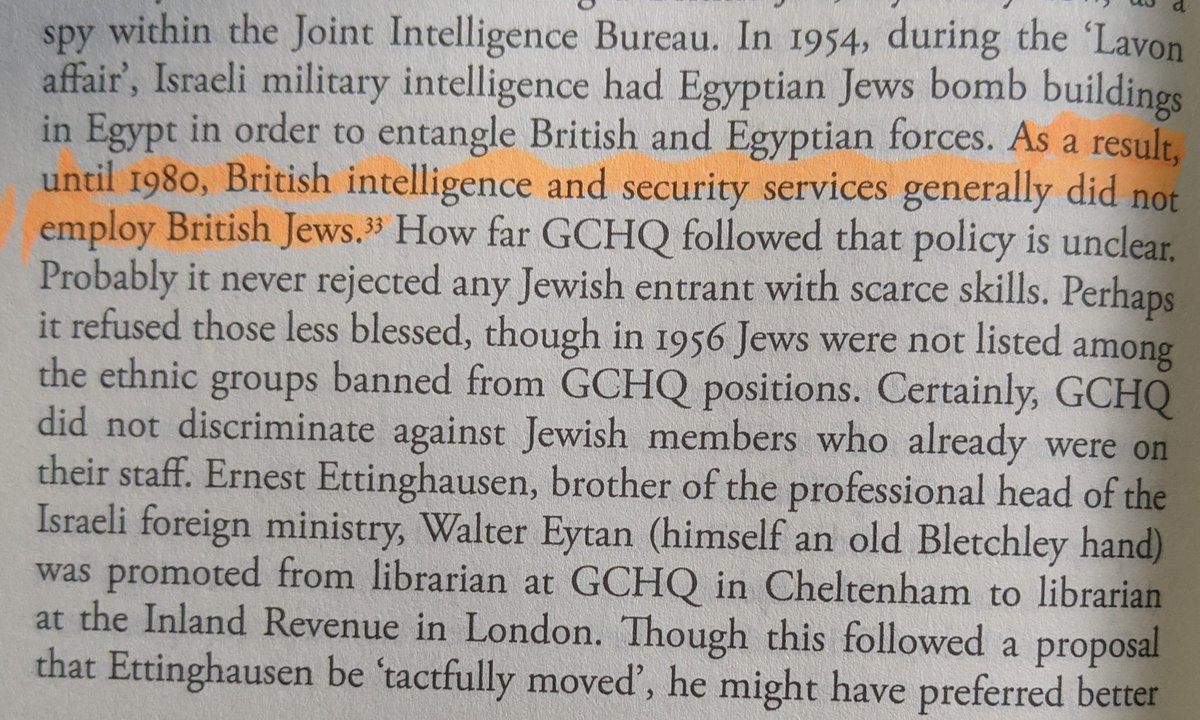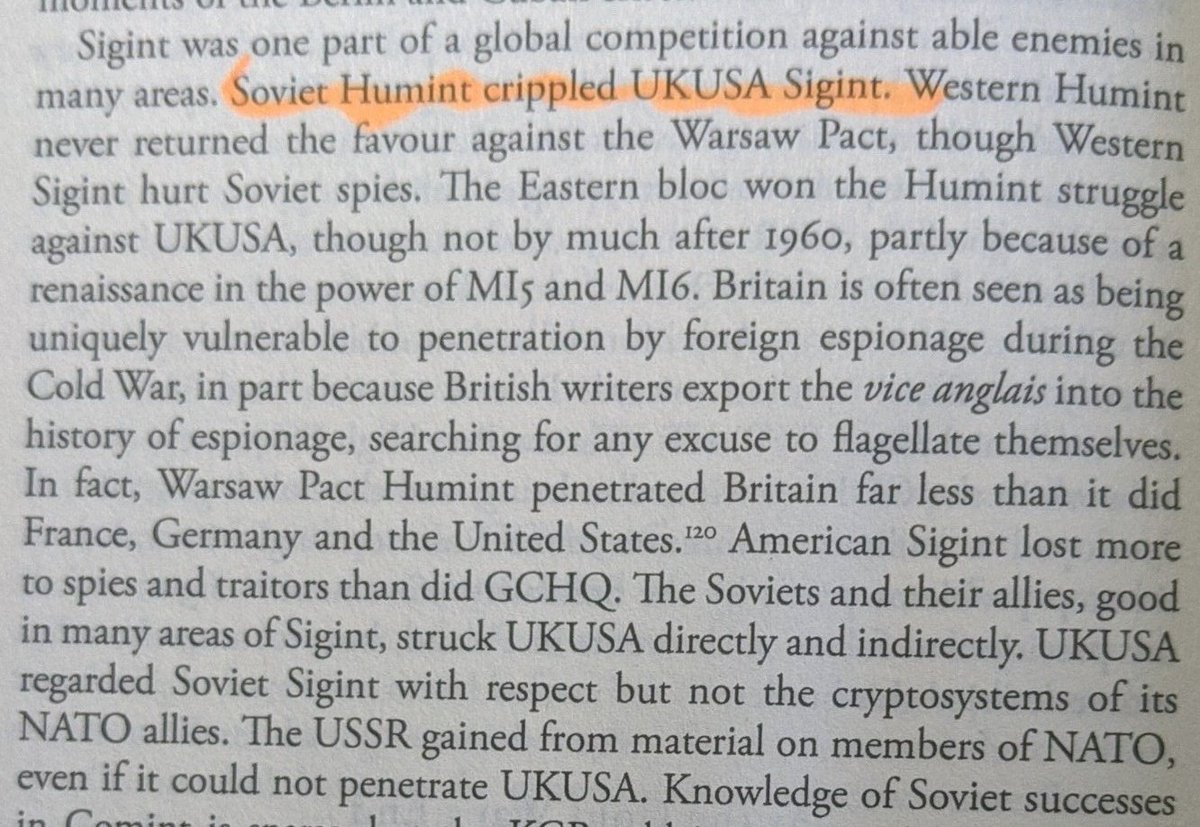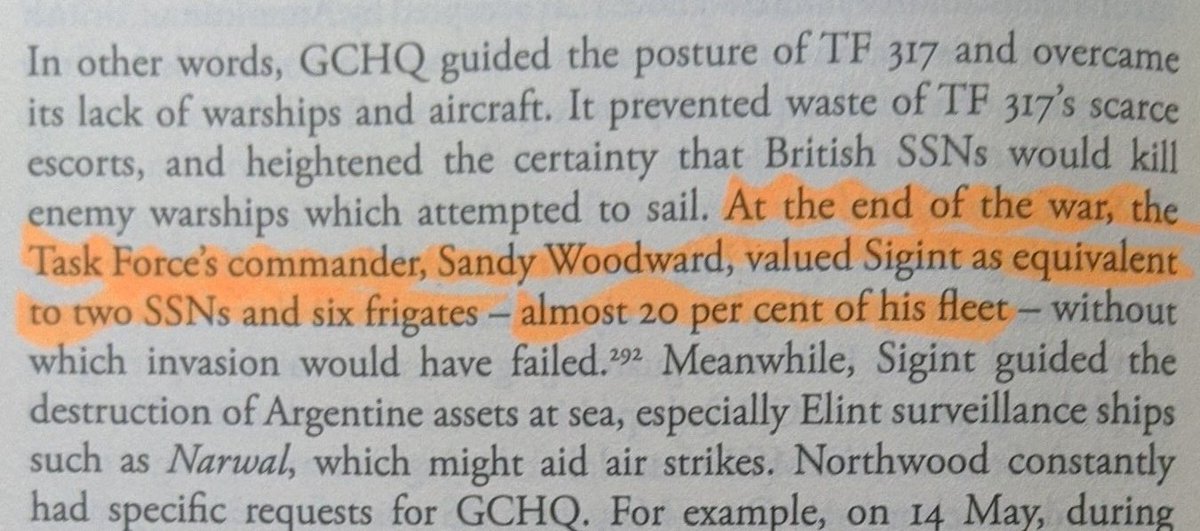My reading for past few weeks. Fascinating book, lots of new material, but despite being an "authorised" history Ferris wasn& #39;t allowed to see diplomatic COMINT after 1945 & other UK or Allied agencies could veto discussion of their activity. Little post-Falklands military detail.
The book is a good bureaucratic and institutional history, hugely detailed on pre-1945 period. But it& #39;s overly long, repetitive in places and organised oddly, jumping between themes (UKUSA, military campaigns) and chronological history. Not very kind on a general reader.
How much did Bletchley/Ultra matter? "The Allies would have won without Ultra, though at much greater cost", concludes Ferris. It "shaved several months from the war in Europe".
Ferris categorically says that rumours of UK selling Enigma to other countries after the war are false.
One big theme: Five Eyes failed to break high-grade Soviet ciphers despite huge effort. "From 1960 Siginters attacking Soviet traffic doubted the value of codebreaking". But traffic analysis proved a major and important source of intelligence on Soviet Union and Warsaw Pact.
Some great details on UKUSA & Five Eyes. At one SIGINT conference between Australia, UK, Canada, UK and USA every attendee held a British passport. At another point, UK and US integrees to NSA and GCHQ respectively negotiated with each other "on behalf of their adopted services"
Very interesting conclusion on UK-US balance of contributions. Ferris says form 1946 to 1964 and then in the internet age, from 1996 to 2020, "GCHQ and NSA helped each other fairly equally". UK did that at cost of "maintaining a division or constructing a nuclear submarine".
"Until 1980, British intelligence and security services generally did not employ British Jews" (though this wasn& #39;t enforced very vigorously). Also a "de facto colour bar".
The neglected role of (sort of) OSINT in the cold war. "Civil text provided a thousand points of light amidst the darkness".
A key cold war conclusion. "Soviet Humint crippled UKUSA Sigint". But at the same time: "NATO wanted Soviet Sigint to be decent or good because that status helped to achieve it& #39;s strategic aim: deterrence". If you aren& #39;t planning to attack, you want the enemy to know that.
During Falklands, "the take matched Ultra at its best". Average interception to decryption/dispatch time was three to eight hours. Whitehall understood intentions of Arg forces "better than their own". But "Crypto went public amidst a war. And there it has stayed ever since".
One big issue is that Ferris doesn& #39;t take time to explain basic cryptography. So discussions of things like Ultra & post-war machine cryptanalysis are virtually impossible to follow unless you already know something of this. Also huge, glaring gaps: Vietnam, Gulf war, Bosnia, etc

 Read on Twitter
Read on Twitter